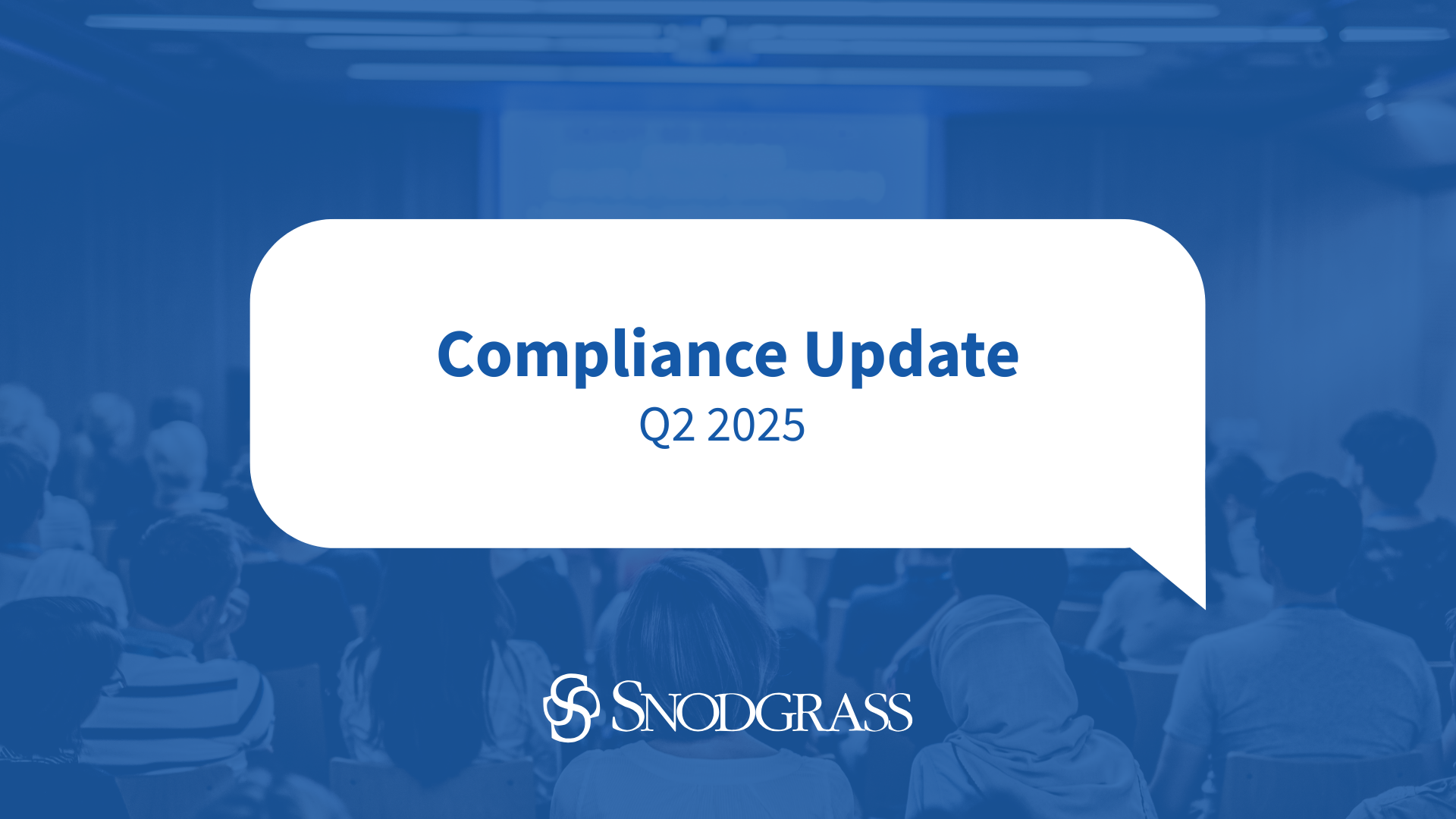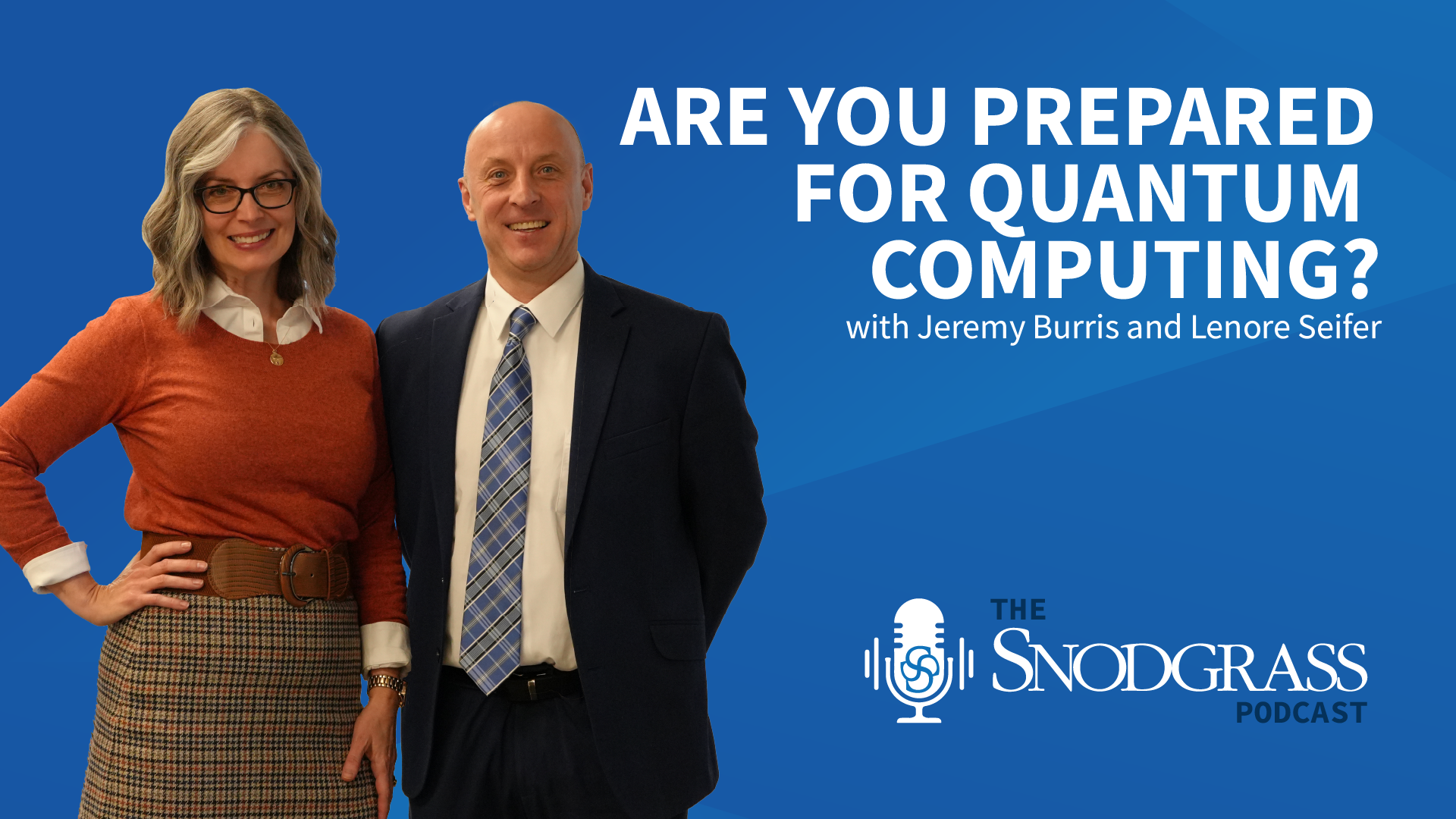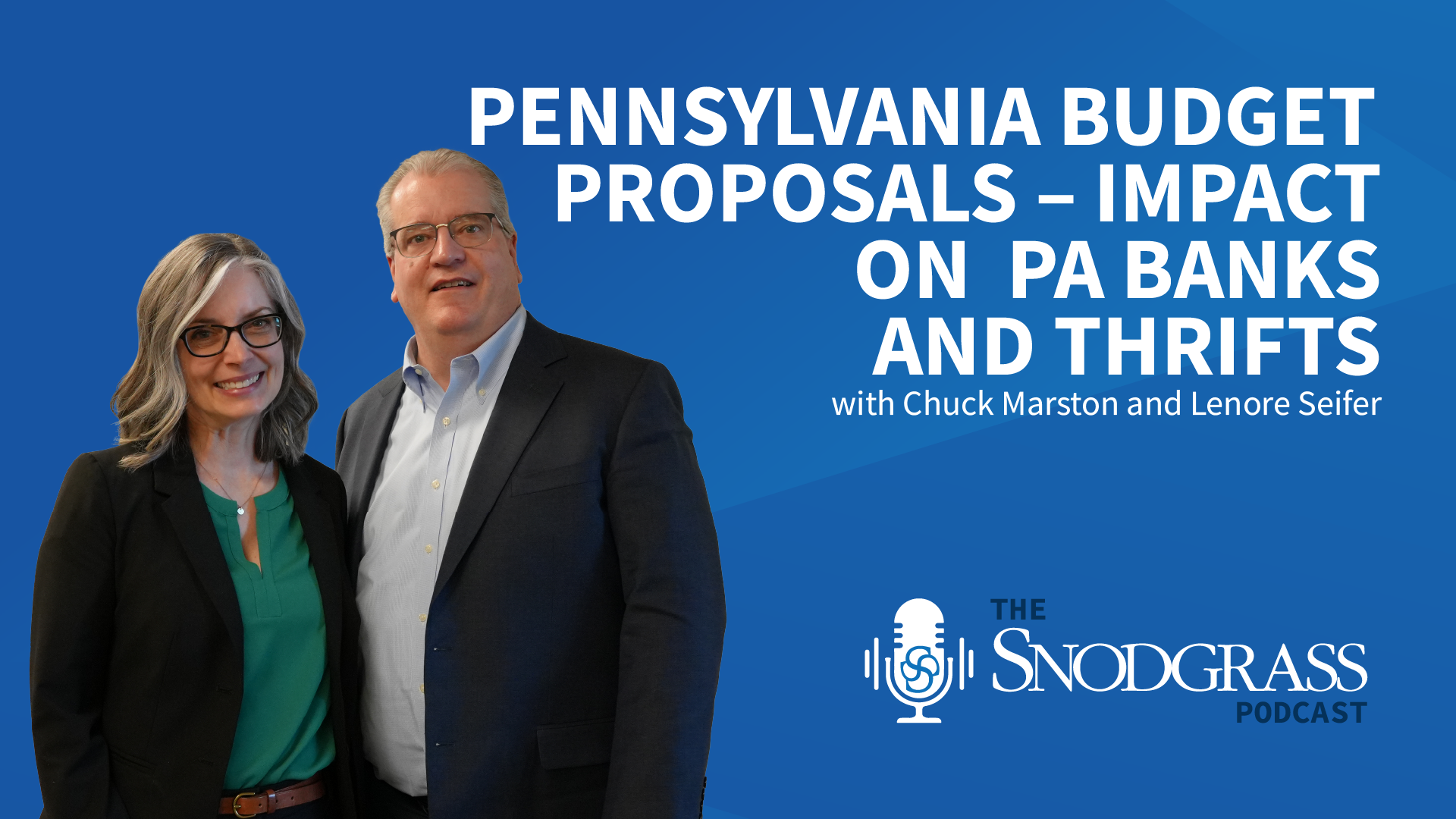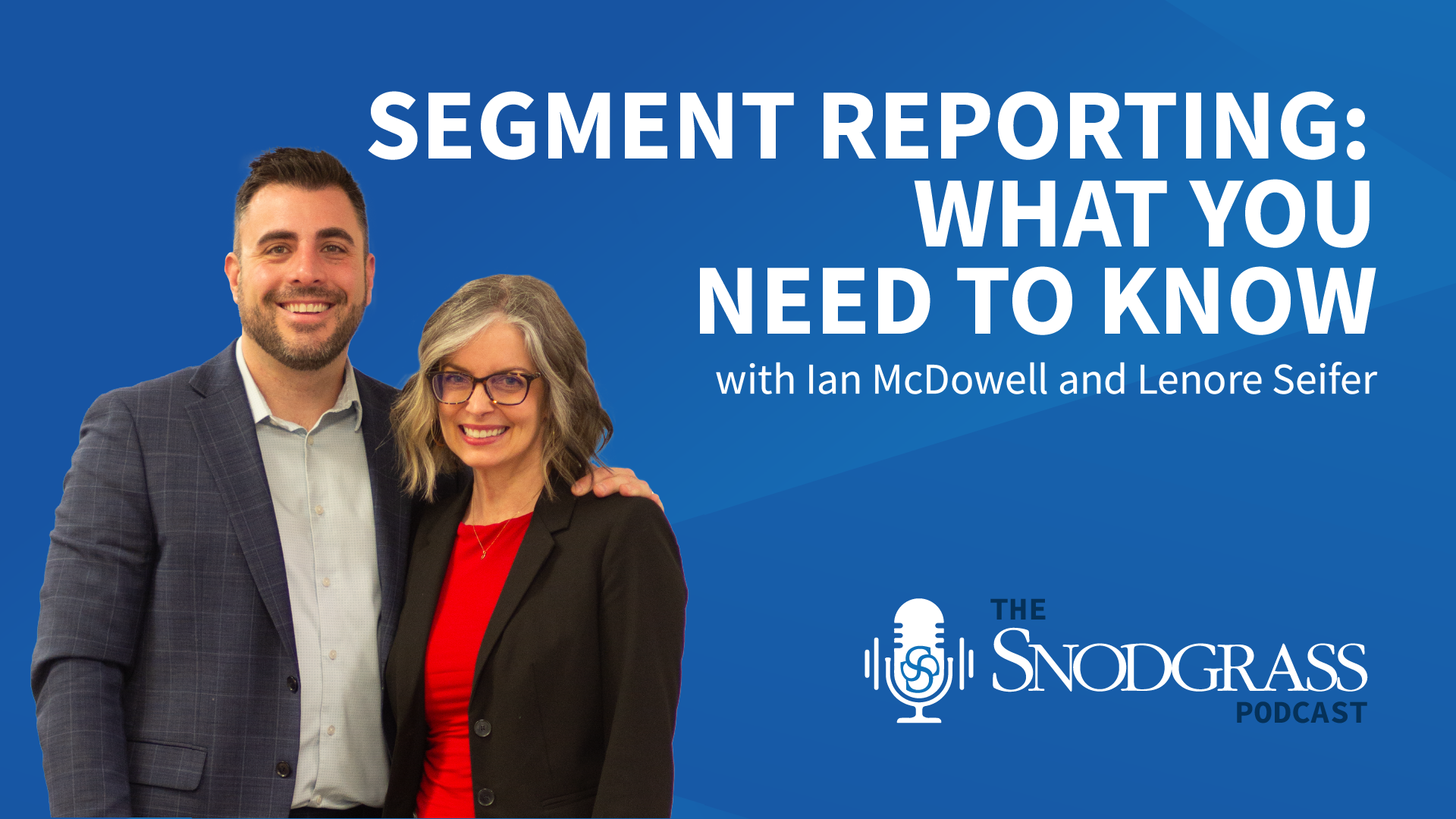In this edition of Get to Know the Snodgrass Team we interviewed Charles Marston, CPA, MST, President and Director of Tax Group.
What was the path you took to get to where you are today?
Out of college (Robert Morris University), I took a job with a small accounting firm. This firm did a little of everything but specialized in two areas, convents and contractors, so I spent a lot of time working with nuns and construction workers. The good thing about working at a small firm right out of college is that you do everything for a client; I worked on the audits as well as the taxes. While I enjoyed the experience, after a little more than five years, it became clear to me that I wanted to specialize in the tax area. That led me to Snodgrass, where I answered an ad placed for a tax specialist. At that time, I had no experience with banking, but I did have a good background in tax overall, so it was a good move. Snodgrass was, at that time, about one year into really developing a separate Tax Department, and I was being hired to take the place of managers who had just left, so the department was pretty small. After a year with Snodgrass, I realized that the path that made the most sense for me was to get my master’s in taxation, so I went back to Robert Morris and took classes at night and on weekends to earn my degree.
What have been the biggest personal challenges you’ve had to overcome in your career?
Right out of college, I would say the biggest challenge was finding out that not all problems are laid out as clean and nice as they are when you are solving them in college. Once in the real world, you find out that many problems are nuanced, and answers may not be as clear, and certainly not as easily found as they may be on your Intermediate Accounting final.
It was also a challenge to come to grips with the fact that mistakes are going to be made and that you must learn from them and apply what you learn going forward and not let them derail you. I’d also say that the one thing that is really hard to do, but is vital to success, is to slow down and focus on things and tasks at hand and not allow yourself to think you have to solve every problem and provide every answer immediately. There are people, and I am probably one of them at times, who want to figure everything out right away and move things from the “to do” list to the “completed” list. It’s a real challenge to stop yourself to focus on things and work your way through them thoroughly and from all angles even if it takes time.
How has Snodgrass changed since you arrived?
I would say the biggest change in Snodgrass from the moment I started back in 1997 is how we utilize technology. When I first started working at the firm, it was pretty much a paper-based firm just beginning to transition to the paperless world. In my first five years here, I watched the disappearance of those old “work paper bags” that used to be carried around by auditors from client to client to having everything accessible all from a laptop. The change is really remarkable. Since my time as CEO of the firm, I have just tried to continue to have the firm build on this, but the changes really occurred and began to take on steam during my initial years here.
What advice would you give to new staff just beginning their career?
I would say perhaps the best thing I could suggest to anyone just starting their career is to read as much as you can, whenever you can. You really don’t know what your career is going to look like at this point, no matter what your plans are, so gain as much knowledge as you can in any/all areas related to where you are at and what you are doing.
It is true that experience is probably the best training, but unfortunately, there is no real way to accelerate experience, so you need patience. By reading as much as you can, you will accelerate your knowledge and prepare yourself to use this knowledge as your experience is gained. I’m also a big believer in reading anything that interests you, even if it may not be directly related to what you do.
I think it’s a good idea to keep things balanced, and it’s a great idea to always be reading two books at a time . . . one that is in some way related to your area of expertise and one outside of that area, such as a biography or a work of fiction. I do still think that there is something to be gained by reading good material, even in these days when so much information can be obtained in other ways.
Who are some business leaders or innovators that you look up to and why?
People who have built businesses that are huge today from basically nothing have always fascinated me. People like Walt Disney, Steve Jobs, Bill Gates, Howard Schultz, and Jeff Bezos all built companies that were like no other before them and are among the biggest companies in the world today. You can even go way back to people like Henry Ford, Benjamin Franklin, and the Wright Brothers to find historical figures who took ideas and built things that were truly innovative.
What are your outside interests?
I like to read as much as I can. Sometimes there just doesn’t seem to be enough time, but I have found that it is widely beneficial and even worth “scheduling time” to do so. I also have always been a huge baseball fan, and while living in Pittsburgh doesn’t always make it easy, I have followed the Pirates as well as the sport itself. While I enjoy following all sports, I believe that no sport has as rich and colorful a history as baseball. Poker has always been something else that I have followed and been fascinated by. My interest in this is not geared toward the gambling aspect of it but rather the strategy and psychology of playing and being successful in that field, specifically the large tournaments that the professionals play in.
Snodgrass Team
The Snodgrass team are industry-recognized experts who are highly sought after as speakers and trainers and for their leadership. Stay tuned for our next edition and get to know other members of our team!



